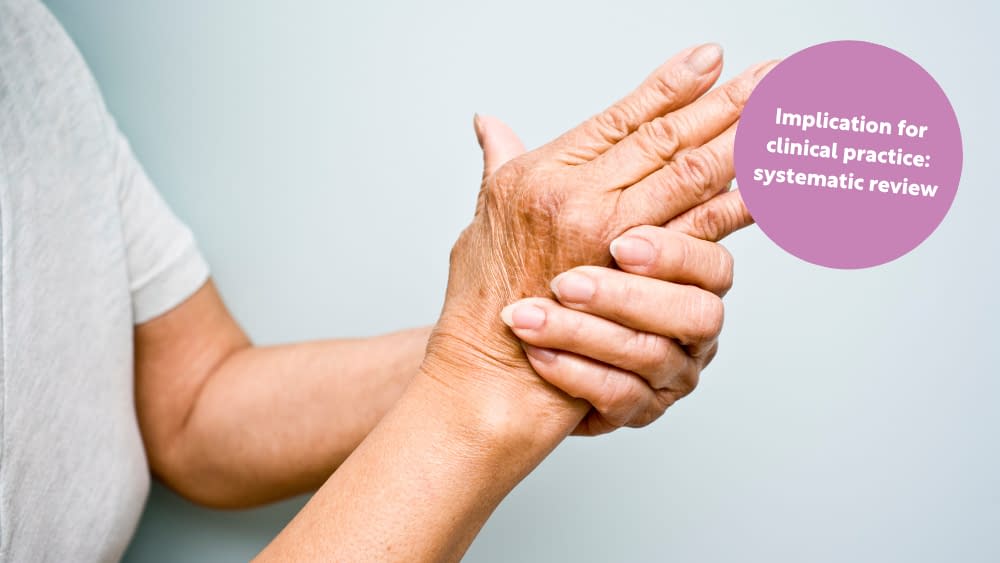Incorporating self-management into routine care for inflammatory arthritis is crucial for enhancing patient-centered outcomes. Healthcare providers should use multidisciplinary strategies that include education, problem-solving, and behavioural support. Further research is needed to identify the most effective components and to develop cost-effective delivery methods, such as digital interventions, alongside a standardised outcome set for consistent measurement.
Context
To assess the effectiveness of self-management interventions in adults with inflammatory arthritis—including rheumatoid arthritis, psoriatic arthritis, ankylosing spondylitis, axial spondylarthritis, and undifferentiated arthritis—and identify the most beneficial components of these interventions.
Methods
- Databases Searched: MEDLINE, Embase, Cochrane Library, CINAHL Plus, Pedro
- Eligibility: Adults (≥18 years) with Inflammatory arthritis; studies must report on interventions explicitly defined as “self-management” or containing key biological, psychological, and social components.
- Outcomes: Self-efficacy and patient-reported outcomes such as pain, fatigue, disability, quality of life, and psychological well-being.
Results
- Most components of self-management interventions demonstrated positive effects on pain, fatigue, self-efficacy, physical and psychological well-being.
- Cognitive–behavioural therapy, response training, and interactive education showed moderate improvement for several outcomes.
- Interventions like psychosocial support and exercise programmes were also effective, particularly for fatigue and pain
- However, some outcomes such as disease activity and healthcare use had low or no effect.
- No study had high certainty evidence across all outcomes.




